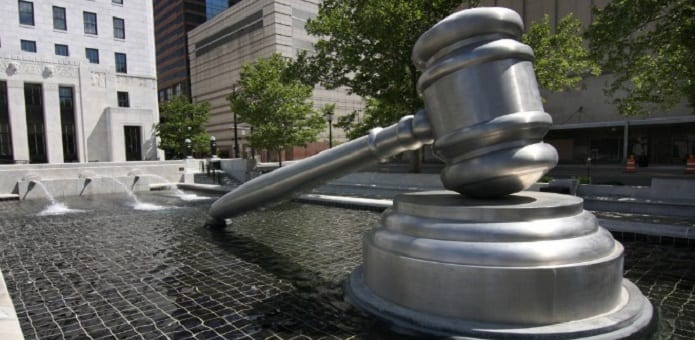Google files suit in court against MPAA over secret censorship plans
Google is taking the MPAA to the court in the hope that it can find out more details about the secret internet censorship plans that Jim Hood was planning. The Search Giant is now asking a New York federal court to make certain that the MPAA and other parties hand over the requested information, after several subpoenas were largely not replied by them.
Jim Hood, Mississippi State Attorney General launched a secret campaign to restore SOPA-like censorship efforts in the United States. After the controversial law failed to pass, the MPAA and Hood want internet services to bring search engine filtering and website blocking start all over again.
Last December, Google filed a complaint against Hood in reply to the rising danger and asked the court to stop Hood from forcing upon a subpoena that deals with Google’s failure to block access or to take down illegal content, including pirate sites.
The District Court Judge Henry Wingate put the subpoena on hold, which resulted in a win for Google. Meanwhile, Google requested additional information from the Attorney General, MPAA and various other parties involved in the scheme.
However, until now, these requests have not proved fruitful. In a motion to compel directed at the MPAA, Google describes that the movie industry group and other petitioned parties have not yet handed over the requested information.
“To date, the subpoenaed parties have produced nothing,” Google’s lawyers inform the court.
“They have inexplicably delayed producing the few documents they agreed to turn over, and have objected that many of their documents, including internal notes or summaries of meetings with AG Hood, are irrelevant or protected by some unsubstantiated privilege.”
Google has also filed similar motions against the MPAA’s law firm Jenner & Block, 21st Century Fox, NBC Universal, Digital Citizens Alliance and Viacom, in addition to the MPAA.
All the petitioned parties have until now declined to hand over the requested information, which includes emails referencing Google as well as communication with and prepared for the Attorney General.
According to the MPAA, this information is “irrelevant” or has special rights; however, Google disagrees with this.
The motion reads “The relevance objections are meritless. As Judge Wingate has already held, there is substantial evidence that the Attorney General’s actions against Google were undertaken in bad faith and for a retaliatory purpose.”
According to the legal experts of Google, the documents will throw light on how the MPAA and others supported and aided the Attorney General to go ahead for internet censorship.
“Google expects the documents will show that the Attorney General, the Subpoenaed Parties, and their lobbyists understood that his actions invaded the exclusive province of federal law,” the motion reads.
“More fundamentally, the documents are likely to show that the Attorney General’s investigation was intended not to uncover supposed violations of Mississippi law, but instead to coerce Google into silencing speech that Viacom, Fox, and NBC do not like…”
James Boasberg, the District Court Judge has directed the case to a magistrate judge, who will talk about the matter in detail in an upcoming hearing. The parties involved in this case will ensure that they leave no stones unturned in order to defend their position, considering the stakes at hand.

